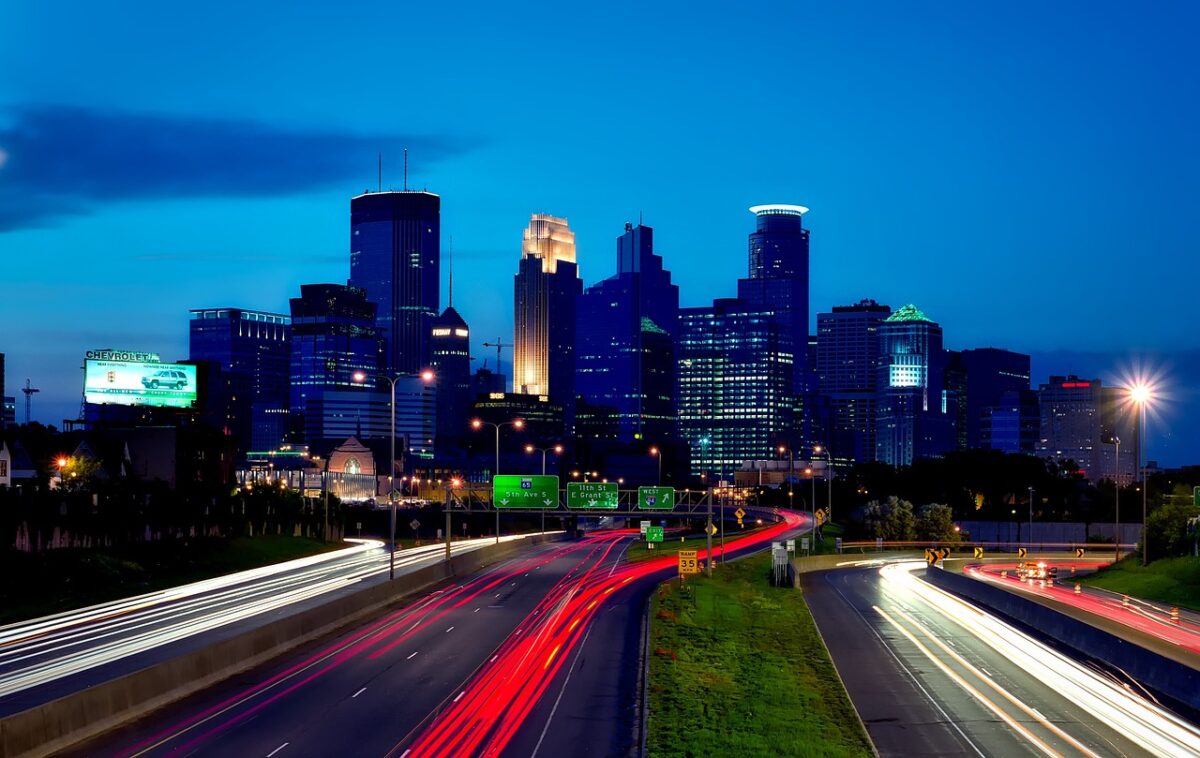
How to Win a Minnesota Recreational Cannabis Dispensary License
Although an exact date for the commencement of Minnesota recreational cannabis dispensary licensing is yet to be determined, Governor Walz has expressed his commitment to establishing a clear pathway for licensing and regulation of Minnesota cannabis businesses by May 2024. Since winning a cannabis dispensary license can be a competitive process, many entrepreneurs and investors are eager to enter Minnesota’s burgeoning cannabis industry. While the specific requirements and procedures for Minnesota recreational cannabis dispensary licensing have yet to be finalized, there are several key steps that can increase your chances of obtaining a cannabis dispensary license.
Winning a cannabis dispensary license requires a combination of thorough preparation, compliance with regulations, and a compelling application that demonstrates your commitment to responsible operations and the overall success of the industry. Get started educating yourself about Minnesota cannabis dispensary licensing today to prepare to enter this new adult-use cannabis market!
Minnesota Recreational Cannabis Dispensary Licensing: Process
Additional regulations will likely expand on requirements for cannabis dispensary licensing, but currently, applicants will be required to receive zoning approval from the local government and provide all required information on forms to the Office of Cannabis Management in the manner prescribed by the Office.
If an applicant fails to submit all required information, a deficiency notice will be sent and the application will be given 10 days to submit required information. Failure by an applicant to submit all required information will result in the application being rejected.
Upon receipt of a completed cannabis dispensary application and licensing fee, the Office of Cannabis Management will forward a copy of the application to the local unit of government in which the business operates or intends to operate. Local government will then provide certification as to whether the proposed cannabis dispensary complies with local zoning ordinances and, if applicable, whether the proposed dispensary complies with the state fire code and building code.
As part of the Minnesota cannabis dispensary licensing process, every license applicant and prospective cannabis worker must submit to a criminal background check. This includes the submission of a completed criminal history records check consent form, a full set of classifiable fingerprints, and the required fees to the Office of Cannabis Management. For business entities, completed criminal background checks, like all other application requirements, are required from every cooperative member, director, manager, and general partner.
Upon receipt of this information, the Office of Cannabis Management must submit the completed criminal history records check consent form, full set of classifiable fingerprints, and required fees to the Bureau of Criminal Apprehension. After receiving this information, the Bureau will conduct a Minnesota criminal history records check of the license applicant. The Bureau may exchange a license applicant’s fingerprints with the Federal Bureau of Investigation to obtain the applicant’s national criminal history record information. The Bureau will return the results of the Minnesota and federal criminal history records checks to the director to determine the applicant’s cannabis dispensary license eligibility.
Within 90 days of receiving a completed application, the Office of Cannabis Management will issue the dispensary license or send the applicant a notice of rejection setting forth specific reasons that the application was denied.
Once a cannabis dispensary license has been issued, it may not be transferred. A new cannabis dispensary license must be obtained if one of the following occurs:
- The form of the licensee’s legal business structure converts or changes to a different type of legal business structure
- The licensee dissolves, consolidates, or merges with another legal organization
- Within the previous 24 months, 50 percent or more of the licensee is transferred by a single transaction or multiple transactions to:
- Another person or legal organization
- A person or legal organization who had less than a five percent ownership interest in the licensee at the time of the first transaction
- Any other event or combination of events that results in a substitution, elimination, or withdrawal of the licensee’s responsibility for the operation of the licensee
Minnesota Recreational Cannabis Dispensary Licensing: Requirements
The Office of Cannabis Management is charged with establishing forms and procedures for the processing of cannabis business licenses, including dispensaries. At a minimum, any application to obtain or renew a cannabis dispensary license will include the following materials, documentations, and forms, if applicable:
- The name, address, and date of birth of the applicant
- The disclosure of ownership and control
- The disclosure of whether the applicant or, if the applicant is a business, any officer, director, manager, and general partner of the business has ever filed for bankruptcy
- The address and legal property description of the business
- Documentation showing legal possession of the premises where the dispensary will operate
- A diagram of the premises, including a security drawing
- A copy of the security plan
- Proof of trade name registration
- A copy of the applicant’s business plan showing:
- The expected size of the cannabis retailer
- The anticipated growth of the cannabis retailer
- The intended methods of record keeping for the cannabis retailer
- The knowledge and experience of the applicant and any officer, director, manager, and general partner of the business
- The environmental plan
- Other relevant financial and operational components
- An attestation signed by a bona fide labor organization stating that the applicant has entered into a labor peace agreement
- Certification that the applicant will comply with Minnesota cannabis business laws relating to the ownership and operation of a cannabis dispensary
- Identification of one or more controlling persons or managerial employees as agents who will be responsible for dealing with the Office of Cannabis Management on all matters
- A statement that the applicant agrees to respond to the Office of Cannabis Management’s supplemental requests for information
To participate in Minnesota cannabis dispensary licensing, applicants must be at least 21 years of age, complete the state’s cannabis dispensary application, and pay the applicable licensing fee. Operating a cannabis retail business in Minnesota, also known as a cannabis retailer, requires an application fee of $2,500 and an initial license fee of $2,500. The renewal fee for this license type is $5,000.
Applicants must also reside in the state, or if a business entity, be incorporated in the state or otherwise formed or organized under the laws of the state with at least 75 percent of the business owned by Minnesota residents.
Current Minnesota cannabis law prohibits licensure to applicants that are employed by the Office of Cannabis Management or any state agency with regulatory authority over adult-use cannabis, as well as applicants that serve as licensed peace officers. Applications will also not be accepted for those with a previously revoked Minnesota cannabis business license, those who have filed any previously required tax returns for a cannabis business, or those who have paid and remitted any business taxes, gross receipts taxes, interest, or penalties due relating to the operation of a cannabis business.
Applicants are required to fully and truthfully comply with all information requests from the Office of Cannabis Management relating to license application and renewal and must not have any disqualifying criminal convictions on their record. Additionally, cannabis dispensaries are prohibited from employing individuals with disqualifying criminal convictions.
Minnesota Recreational Cannabis Dispensary Licensing: Limitations
The Office of Cannabis Management will determine the amount of licenses necessary to meet consumer demand and provide market stability, as well as limit the sale of unregulated cannabis flower and cannabinoid products.
Like many other established cannabis markets, retailers are required to comply with local building ordinances, maintain security, maintain adequate lighting, and accept deliveries through limited access areas. Minnesota cannabis retailers may not operate a drive-through window or cannabis vending machine, and may not sell cannabis plants, cannabis flower, or cannabinoid products when a security system, or the statewide monitoring system, is not working. Although cannabis retail license holders may also hold a cannabis delivery service license, a medical cannabis retailer license, and a cannabis event organizer license, they may not own or operate any other Minnesota cannabis business.
It’s important to note that a few cities have chosen to temporarily halt cannabis-related businesses. With the recent legislation, cities have the authority to enact temporary regulations that prohibit the operation of cannabis establishments until January 1, 2025. Brooklyn Center, Mankato, West St. Paul, Ramsey, and East Grand Forks are among the cities that have chosen to implement bans within their jurisdictions.
Minnesota Recreational Cannabis Dispensary Licensing: Selection Criteria
The Office of Cannabis Management will issue licenses in each license category, giving priority to applicants who receive the highest score. If there are insufficient licenses available for entities that receive identical scores, the Office of Cannabis Management will utilize a lottery to randomly select license recipients from among those entities.
Cannabis dispensary licensing guidelines will be made available to the public regarding the number of points available in each category and the basis for awarding those points. Status as a social equity applicant will account for at least 20 percent of the total available points, and in determining the number of points to award to a cooperative or business applying as a social equity applicant, the Office of Cannabis Management will consider the number or ownership percentage of cooperative members, officers, directors, managers, and general partners who qualify as social equity applicants.
The Office of Cannabis Management will award points to each completed application in the following categories:
- Status as a social equity applicant or as an applicant who is substantially similar to
- a social equity applicant
- Status as a veteran applicant
- Security and record keeping
- Employee training plan
- Business plan and financial situation
- Diversity plan
- Labor and employment practices
- Knowledge and experience
- Environmental plan
Individuals will be eligible for the social equity program if they meet the following criteria:
- A military veteran who lost honorable status due to a cannabis-related offense
- A resident for the last five years of one or more subareas, such as census tracts or neighborhoods, that experienced a disproportionately large amount of cannabis enforcement as determined by the study conducted by the Office of Cannabis Management
- A resident for the last five years of one or more census tracts where, as reported in the most recently completed decennial census published by the United States Bureau of the Census, either:
- The poverty rate was 20 percent or more
- The median family income did not exceed 80 percent of statewide median family income or, if in a metropolitan area, did not exceed the greater of 80 percent of the statewide median family income or 80 percent of the median family income for that metropolitan area
Application materials will also be available to allow individual applicants to demonstrate the impact that cannabis prohibition has had on that applicant including but not limited to the arrest or imprisonment of the applicant or a member of the applicant’s immediate family, and the Office of Cannabis Management may award points to such applicants in the same manner as points are awarded to social equity applicants. The Office of Cannabis Management may also give license priority to an application if the license issuance would expand service to an underrepresented market including but not limited to participation in the medical cannabis program.
How Can Point Seven Group Help?
The team of cannabis consultants and professionals at Point Seven Group have worked extensively in the U.S. and international cannabis markets and are familiar with the unique challenges of the cannabis industry. Follow us on social media to stay up to date with more cannabis industry updates!
- Wayzata moves to open city-run weed dispensary
 The City of Wayzata is considering opening its own recreational cannabis dispensary sometime next year. On Tuesday, Wayzata’s City Council and mayor approved a contract with Colorado-based consulting firm Point7 to draft a business plan for the possible municipal dispensary. This would be the city’s …
The City of Wayzata is considering opening its own recreational cannabis dispensary sometime next year. On Tuesday, Wayzata’s City Council and mayor approved a contract with Colorado-based consulting firm Point7 to draft a business plan for the possible municipal dispensary. This would be the city’s … - Indiana Cannabis Legalization: 2024 Update
 The Midwest has become a bustling hub for cannabis policy and industry, with states like Michigan, Illinois, and Ohio leading the charge in cannabis legalization. However, Indiana’s stance on cannabis remains a topic of significant interest and debate. As we delve into the status of …
The Midwest has become a bustling hub for cannabis policy and industry, with states like Michigan, Illinois, and Ohio leading the charge in cannabis legalization. However, Indiana’s stance on cannabis remains a topic of significant interest and debate. As we delve into the status of … - Cannabis Expungement and Social Equity: Proven & Failed Concepts
 In the realm of cannabis expungement and social equity, examining both proven and failed concepts is crucial for understanding the complexities of justice reform and equity within the cannabis industry. Proven concepts include initiatives such as automatic expungement processes, which streamline the clearance of certain …
In the realm of cannabis expungement and social equity, examining both proven and failed concepts is crucial for understanding the complexities of justice reform and equity within the cannabis industry. Proven concepts include initiatives such as automatic expungement processes, which streamline the clearance of certain …

